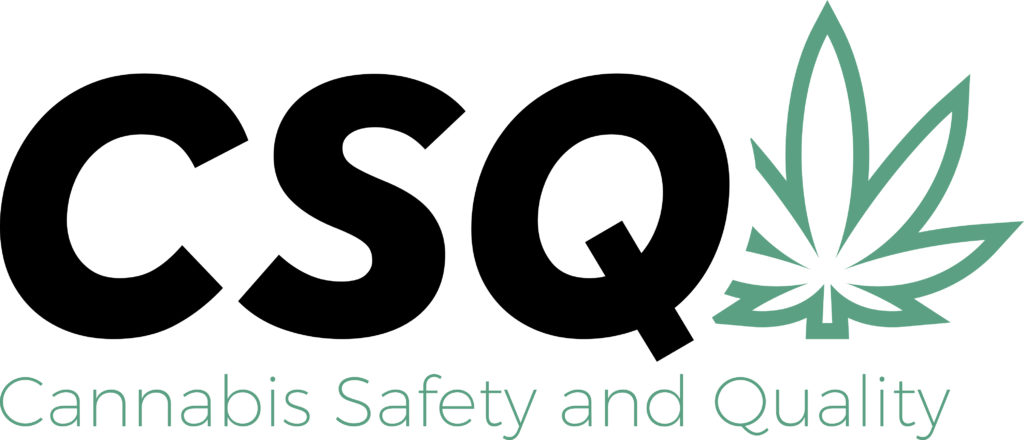
Continued growth for the legal cannabis industry requires that consumers have greater knowledge and confidence in these products. Unfortunately, due to lack of federal oversight, many grey areas still exist. You cannot blame anyone for being confused these days about what exactly is in their cannabis beverage, for instance. Better oversight and legal definitions are both necessary.
That is why the food auditing company ASI launched its Cannabis Safety & Quality Certificate (CSQ) program in 2020. Shortly after, CSQ awarded its first certifications to Curaleaf, a leading U.S. provider of consumer products. For a deeper dive into this subject, we recently spoke with Tyler Williams, Chief Technical Officer at CSQ.
Cannabis Regulator: What was the thinking behind creating CSQ?
Tyler Williams: ASI, our parent company, started receiving requests from the cannabis industry about four or five years ago. They were interested in our Good Manufacturing Practices (GMP) certification. That’s when we realized that our GMP for food processing also works for cannabis.
So we started working with stakeholders in the industry to define GMP standards for cannabis. We worked with mom and pop cannabis companies all the way up to large facilities, trying to understand what needed to be built into the standards. Once we realized that there was a lot of demand, and the direction that the industry was going in, we took it through the accreditation process.
CR: How does a company earn CSQ certification?
TW: We don’t actually perform the audit ourselves. We license the use of our standards to certification bodies, currently two of them: our parent company ASI, and QIMA/WQS. Both are well known in the food industry. We’re hoping to have three more auditing bodies by the end of the year, for a total of five.
The foundation of our certification program has four standards that companies can seek: Growing and Cultivation of Cannabis Plants, Manufacturing and Extraction of Cannabis, Manufacturing and Infusion of Cannabis into Food & Beverage Products, and Manufacturing of Cannabis Dietary Supplements. We’re working on a fifth standard to offer, for cosmetics and cannabis packaging.

CR: Tell us about an audit.
TW: It’s built around safety and quality. We make sure that the cannabis company has a recall program in place, they’re vetting suppliers properly, their product is not contaminated, they’re following local regulations, there’s security in place, there’s no product fraud going on, etcetera. There’s 40 to 50 different sections built around different topics of safety and quality.
CR: Rhetorical question, but why are these cannabis certifications needed?
TW: Because this industry is still in its infancy, it’s still young and emerging. We’ve gotten into the realm where the term ‘CBD’ has entered into the ‘Wild Wild West’ in terms of the definition. The only regulations coming down from the FDA regulate safety in growing conditions, with nothing on the manufacturing side. It’s an environment where companies can do whatever they want.
States have minimal requirements. They only regulate testing on the finished product, and they’re only testing 5-10% of those finished units. What about the other 95%? What about the rest of the manufacturing process?
If you’re not practicing good testing from raw materials to the finished product, there are a lots of things that can go awry. There are a lot of control processes that need to be monitored. We could start to see recalls and other problems. That brings the risks that the FDA could step in with overbearing restrictions, or that consumers become scared to use these products.
In 2009, the peanut butter industry had a massive recall after 700-plus people got sick. After that, people stopped buying peanut butter for some time. Consumers will stop buying products if they don’t trust them. That’s why we’re doing what we’re doing. We want to build trust in this industry.
CR: When will the FDA step in with greater regulations?
TW: That’s the question I get every day. The answer is: We just don’t know.
CR: What would responsible federal policy look like, in your opinion?
TW: The FDA shouldn’t just lump all products under the same regulation. Look at what the product is and it’s intended use. Naturally there needs to be tighter regulations for medicinal cannabis products going to immunocompromised patients, whereas food and supplements products should be allowed more wiggle room.
This interview was edited and condensed for publication.
Kyle Swartz is editor of Cannabis Regulator. Reach him at kswartz@epgmediallc.com or on Twitter @kswartzz. Read his recent piece, What’s Next for Cannabis Beverages?









